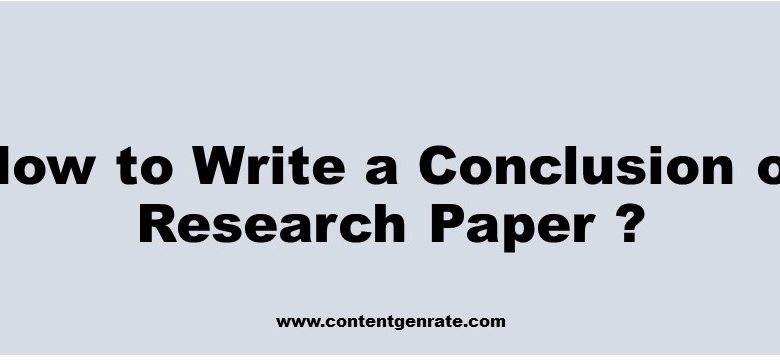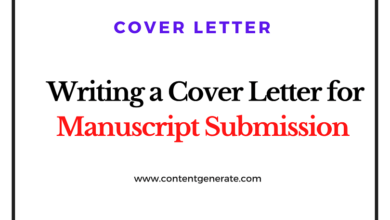
Conclusion of Research paper: In academic research papers, conclusions hold equal importance to introductions as they often serve as the final piece that readers peruse. These are your final opportunities to create a positive impression on the individual who is perusing the text. Some readers in academia may eagerly prioritize reading the to aid them in deciding whether or not to peruse the full content of the Paper! Undoubtedly, this can be the most challenging element.
Regarding the task at hand, which involves the composition of a research article. This guide will focus exclusively on the the purpose of a conclusion is to provide a summary and offer guidance on how to proceed.
When composing a conclusion, it is important to be aware of both the appropriate actions and the actions to avoid. This document comprises a pair of annotated examples extracted from published articles, one of which is brief and the other more extensive.
The main aim of the Conclusion of Research Paper
The aim of conclusions extends beyond the mere provision of a synopsis of the paper. They ought to place greater emphasis on the importance of your discoveries. Providing a succinct overview while advantageous is only the preliminary stage. When proficiently implemented, conclusions possess the capacity to elicit a dual effect on readers: gratification and an anticipation for additional details.
Operating efficiently conclusions serve to encourage readers to reflect on the material they have just consumed and to make connections to their prior understanding and stimulate their curiosity to further explore the subject matter. Your conclusion should ultimately offer assistance. It is requested that readers provide their responses to the subsequent inquiry: What is the fundamental importance of this subject matter, and why ought it to perplex me?
Ways of Writing Research paper Conclusion
The format of your paper and the topic of your research may dictate that you organize your conclusion according to specific categories. Three fundamental categories of conclusions are present:
To summarize: A summarizing conclusion is frequently utilized to deliver a succinct synopsis of the key elements comprising the subject matter and thesis. While this is the prevailing format for the majority of research papers, specific studies may require an alternative approach.
An externalizing conclusion: It pertains to the incorporation of arguments or concepts that were not overtly stated or significant in the manner in which the study and thesis were presented. However, these kinds of discoveries can have a significant impact by introducing new ideas that further develop the subject matter that was initially presented in your research.
The aforementioned Conclusion: It is an editorial conclusion, which consists of the author’s final remarks or commentary. By providing research, this type of conclusion establishes a logical link between your ideas and the aforementioned. One may articulate their opinions concerning the results, conclusions, or the entire subject matter.
Writing an Impressive Conclusion of Research Paper
The purpose of a persuasive conclusion in a research paper is to reassure the reader of the significance and strength of your position. The purpose of concluding remarks is to refocus the reader’s attention on the main points and provide corroborating evidence for the arguments or position presented in the research. In addition, conclusions may serve as a basis for future research by generating novel ideas to resolve a problem that was highlighted in the work or by suggesting novel approaches to a subject.
- An effectively constructed conclusion of research paper
- The importance of your thesis statement is underscored.
- Affects the study paper in a comprehensive manner.
General tips for Writing an impactful Conclusion
While composing the concluding section of your research paper, bear in mind the following:
Keep your summaries of facts, main points, and thesis statements succinct and straightforward.
If you are beginning to feel inundated, limit your conclusion to a straightforward synopsis.
- Present a synopsis of the material through the inclusion of inquiries and corresponding answers, discoveries, suggestions, or a method for resolving conflicts.
- Include only those arguments and points that are most germane to the article that you presented.
- Although employing the summarising framework can aid in ensuring that every element pertinent to your research is incorporated, it is also possible to explore various conclusion strategies.
Things to Avoid while Writing a Conclusion of Research Paper
Avoid the following common errors when composing the conclusion of research paper.
Avoid beginning your conclusion with “in conclusion” or “in summary,” as these expressions are redundant and rather simplistic.
- Avoid commencing your conclusion with unanticipated information.
- Avoid omitting your thesis statement until the conclusion.
- Try to be as succinct and direct as possible; avoid digressions. Maintain your attention on the implications of your research rather than the procedures and results (which are included in the body of the paper).
- Do your best to avoid apologising if you have any concerns regarding your research paper. If one feels obligated to address the limitations of the research, remain faithful to delineating the specific constraints that were encountered.
- Strive for an analytical conclusion as opposed to an overly sentimental one.
You can read the conclusion of research paper here




